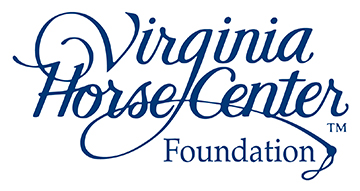
Estate Planning for Horse Owners
Beyond the Bridle: Estate Planning Considerations for the Horse Owner By Elizabeth M. Horsley
We are delighted that Virginia Horse Center Foundation Board Member Elizabeth M. Horsley contributed to our March VHC Newsletter.
Elizabeth is counsel at the Richmond law firm of Christian & Barton, L.L.P., where she focuses on estate and trust administration and planning and is also active in Virginia’s equestrian community.
According to Horsley, I was consulted recently about establishing a trust for the care of a horse after the owner’s death or incapacity. While information concerning a “pet trust can be found online,” it can be confusing. Below is a basic overview of several estate planning tools you may want to consider when planning for the continuing care of your horse.
You may be surprised to hear you could set up a “pet trust” because this is your horse, not a pet. But remember, a horse is considered personal property. Accordingly, a horse is treated much like a car for estate planning purposes.
Similar to your car, your horse carries certain financial obligations, and the recipient will be responsible for paying for care and upkeep. If your horse becomes part of your estate, the executor or administrator of your estate will be responsible for selling, leasing, or otherwise providing for the horse’s ongoing care. If a trust is set up for your horse, the trustee of your trust will assume the same responsibilities, subject to the instructions set forth in your trust, and you will fund the trust to pay for the ongoing care.
Generally, there are three types of arrangements to consider when planning for the
ongoing care of your horse: (1) transfer by will to an individual or organization (a “recipient”), (2) transfer to the trustee of a trust, and (3) transfer of ownership to a corporate structure such as a limited liability company. Your specific circumstances, including tax planning strategies, should be evaluated when considering these arrangements. I will focus on the transfer by will and trust.
If you choose to transfer your horse by your will, the terms of your will name a recipient to receive your horse at your death. You may include a monetary gift to the recipient to assist and/or incentivize the recipient to provide care for the horse. However, enforcement of your specific wishes regarding care may be limited. A gift with strings attached is sometimes referred to as a conditional gift, and it may be difficult to enforce.
If you transfer your horse to a trust, it is easier to impose conditions. You will consider whether you want to establish a revocable or irrevocable trust and whether you want to fund the trust during your life or at death. In addition to transferring the horse to the trust, you may transfer financial assets to provide for the horse’s care. Your trustee may be responsible for managing the care of the horse and the finances you transfer to the trust, or you may choose to name a caregiver in addition to the trustee. If you choose to name a caregiver, responsibilities for managing the finances of the trust and care of the horse will be bifurcated; however, the trustee will have a fiduciary duty to make sure the assets of the trust, which would include the horse, are managed properly.
After deciding how you want to transfer your horse, you should carefully describe the following in the transfer document:
• Your horse’s standard of living and care;
• The duties of your trustee and/or caregiver regarding care;
• The purposes for which funds are to be distributed;
• Instructions for your trustee or caregiver after the death of your horse and
• The remainder beneficiary or beneficiaries who will receive any funds remaining in the trust.
As stated initially, I have generally described only two estate planning options to ensure your horse is cared for after your death or incapacity. You should consult an estate planning attorney in the state in which you reside for additional information if you wish to consider including your horse in your estate plan.
